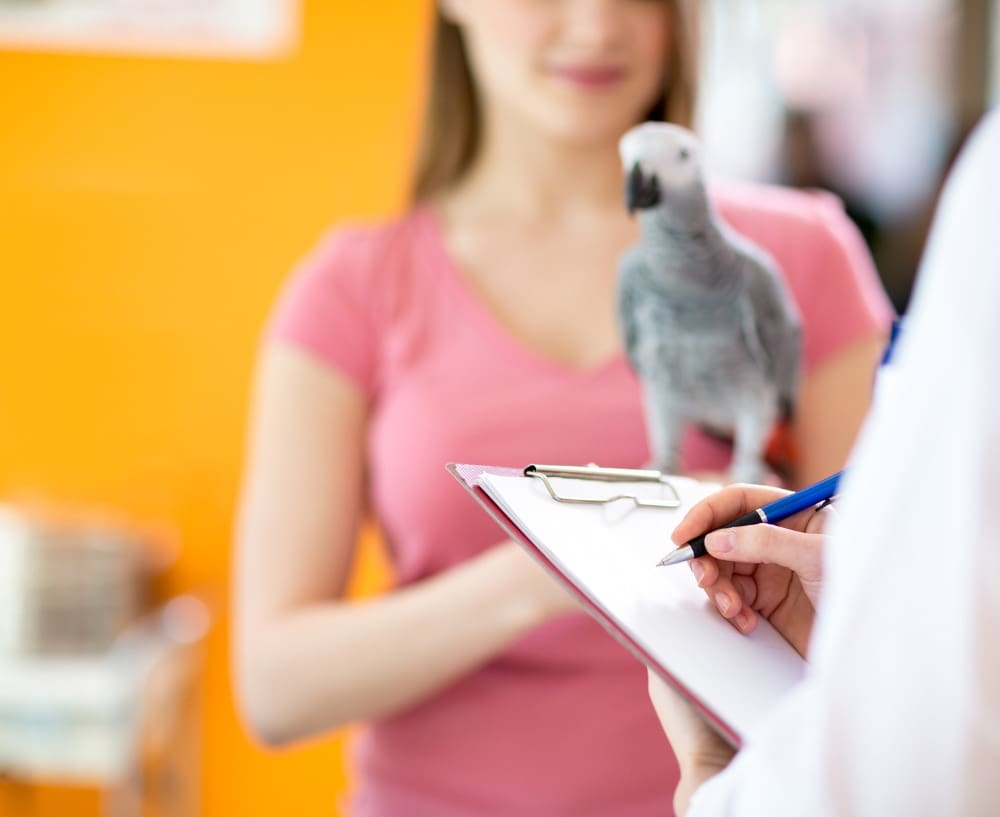When you have a parrot, it’s important to know about diseases that can affect them, like Avian Borna Virus (ABV), Beak and Feather Disease (BFD), and Chlamydia (Psittacosis). It’s crucial to test both new and existing parrots for these diseases to keep them healthy. ABV affects the nervous system and can cause behaviour changes, neurological problems, vomiting, diarrhea, weight loss, and feather issues. Catching it early through regular testing is important, especially if your parrot starts acting differently.
Beak and Feather Disease harms the feathers, beak and immune system. Look for feather and beak problems and a weaker immune system. This disease can spread quickly, so testing is especially important if you have more than one bird. Chlamydia, or Psittacosis, can affect both parrots and humans. It causes respiratory problems, tiredness, and greenish droppings. Regular testing is key, especially when bringing in new birds, as Psittacosis can hide and show up later when the bird is stressed or sick.
Testing helps in treating sick parrots and stopping diseases from spreading to other birds. When you get a new parrot, keep them separate at first and get them tested before introducing them all. Working with a vet who knows about parrots is essential. Regular check-ups, tests, and following safety steps are all important for keeping your parrots healthy.
Avian health check © LuckyBusiness, Getty Images
Signs of Illness in Companion Parrots
To know your bird is to perhaps save his life one day. First, always ensure he is healthy by having him examined by an avian vet. This will establish a baseline of parameters against which future situations can be assessed. After that, deviations from the norm must be addressed, and trouble ruled out. Parrots, being prey animals, tend to want to hide their conditions, so close observation is very important.
Some symptoms or changes to consider are:
- coughing, sneezing, diarrhea or vomiting (bringing up semi-digested food)
- change in normal behaviour (play, preening, socializing)
- change in appetite
- change in drinking habits
- excessive sleepiness
- lack of interest in surroundings
- fluffed up, hunched appearance
- change in consistency, colour of droppings
- dullness to feathers, eyes
- inability to balance or perch
- resting on bottom of cage
- changes in body or head posture
Some things that may cause problems:
- abrupt change in diet
- abrupt changes in circumstances (new pet, new baby, move to new home)
- inadequate nutrition
- environmental toxins (tobacco and other smoke, disinfectants, air fresheners, poisonous plants, overheated Teflon)
- excess vitamin supplementation
- poor hygiene practices
- incorrect environmental temperature
- lack of environmental enrichment
These lists are by no means complete and if you are in doubt talk to a vet or an animal health technician trained in treating parrots.
Source: Avian Medicine – Principles and Practices, Ritchie, Harrison and Harrison, Wingers Publishing Inc, Florida, 1997
Learn more about keeping your companion parrot healthy by visiting the Reference Library.

